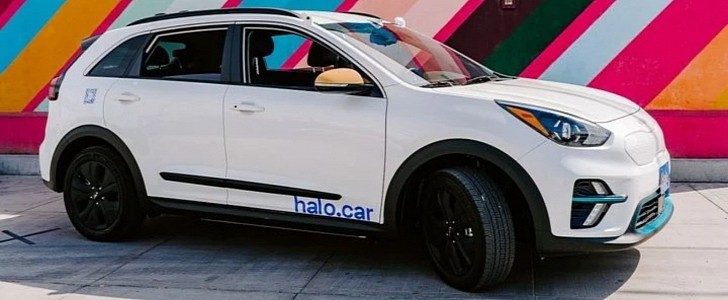Halo.Car is a driverless electric car share provider, and earlier this week, it announced a $5M seed round led by climate tech fund At One Ventures, which will enable the start-up to accelerate its growth.
The company aims to increase the global EV transition by offering a convenient electric carshare service. So, how does it work exactly? Typically, when you'd like to rent a car or use carsharing, you must walk to the vehicle's location. Well, Halo.Car eliminates the "walking and waiting" by delivering EVs on-demand to your location.
The ride is delivered driverless as the start-up's remote pilots navigate it using video and sensor data streamed from Halo's hardware on the car. You'll have complete control of the vehicle as soon as it's delivered. Go on about your business, complete your booking, and you won't need to leave it in a specific place, as the remote pilot will retake control and navigate it back to the company's HQ. The vehicles can be rented hourly or at a flat rate per day.
Using T-Mobiles 5G technology and other mobile networks, remote pilots can quickly and reliably connect to and operate the cars.
The founder and CEO of Halo.Car, Anand Nandakumar, said, "Halo.Car eliminates the friction associated with traditional carshare to make it easy for customers to switch, and start driving electric. Customers save money on a monthly car payment without losing the convenience of having a car at their doorstep."
Nandakumar previously led perception for Uber's self-driving unit Advanced Technologies Group. Safety is of the utmost importance to him, and that's why his company uses human drivers instead of autonomous technology. Even though driverless technology has significantly advanced in recent years, it's not yet prepared to be fully adopted. Remote human pilots are a safer and faster way of delivering Halo.Car's vehicles to its customers.
The start-up began testing in Las Vegas in February 2021 and has completed thousands of miles before it launched its public Beta in July this year. The beta phase consisted of support operators sitting inside the vehicles to oversee the remote pilot's deliveries.
Halo.Car expects to provide totally remote deliveries later this year when it will officially launch. It also plans to expand to more cities and scale its fleet, targeting 1,000 EVs on the road by the end of 2023.
The ride is delivered driverless as the start-up's remote pilots navigate it using video and sensor data streamed from Halo's hardware on the car. You'll have complete control of the vehicle as soon as it's delivered. Go on about your business, complete your booking, and you won't need to leave it in a specific place, as the remote pilot will retake control and navigate it back to the company's HQ. The vehicles can be rented hourly or at a flat rate per day.
Using T-Mobiles 5G technology and other mobile networks, remote pilots can quickly and reliably connect to and operate the cars.
The founder and CEO of Halo.Car, Anand Nandakumar, said, "Halo.Car eliminates the friction associated with traditional carshare to make it easy for customers to switch, and start driving electric. Customers save money on a monthly car payment without losing the convenience of having a car at their doorstep."
Nandakumar previously led perception for Uber's self-driving unit Advanced Technologies Group. Safety is of the utmost importance to him, and that's why his company uses human drivers instead of autonomous technology. Even though driverless technology has significantly advanced in recent years, it's not yet prepared to be fully adopted. Remote human pilots are a safer and faster way of delivering Halo.Car's vehicles to its customers.
The start-up began testing in Las Vegas in February 2021 and has completed thousands of miles before it launched its public Beta in July this year. The beta phase consisted of support operators sitting inside the vehicles to oversee the remote pilot's deliveries.
Halo.Car expects to provide totally remote deliveries later this year when it will officially launch. It also plans to expand to more cities and scale its fleet, targeting 1,000 EVs on the road by the end of 2023.









